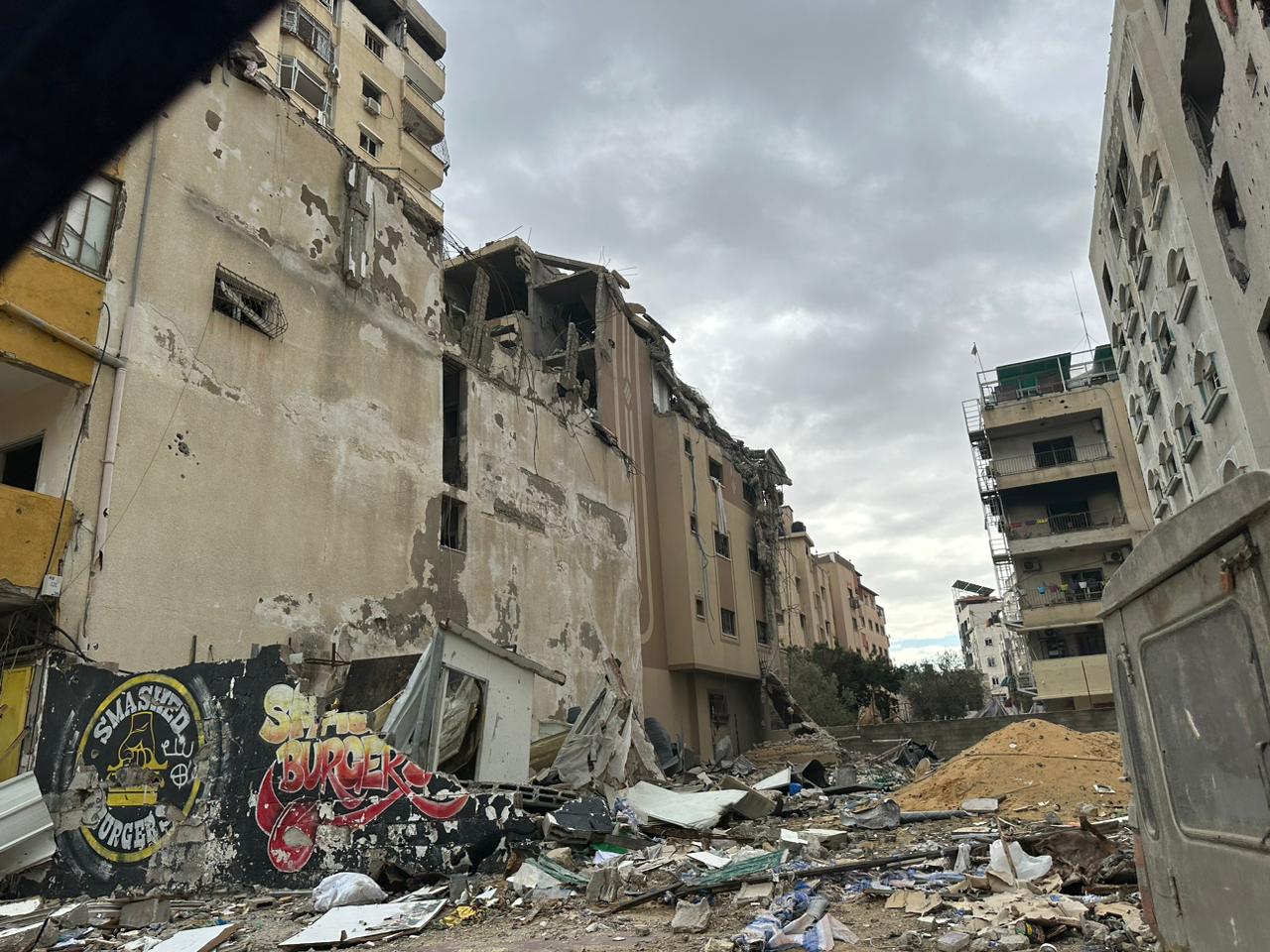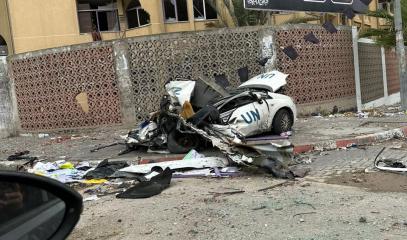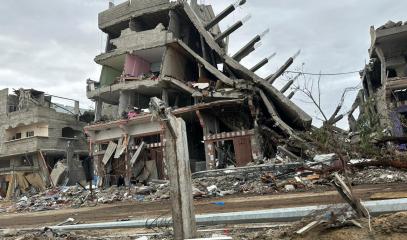Sister Nabila: 'destruction everywhere' in Gaza, a 'tragedy' in every street and in every family
For the nun, who has been in Gaza for 13 years, the truce has “allowed us to sleep a little more”, and “visit the few shops still open” to buy “some winter clothes”. Food, medicines, and fuel are needed. She laments that “there is no safe place from north to south." Of the four wars, this is the “bloodiest." There is a lack of prospects for the future "especially for children". She appeals for a "Christmas of peace".
Milan (AsiaNews) – There is “devastation everywhere, everything is destroyed. During the truce, Christians have taken the opportunity to go and see their homes; no one has returned happy because not one is left. They are all reduced to rubble or otherwise unusable,” this according to Sister Nabila Saleh, a member of the congregation of the Sisters of the Holy Rosary, speaking to AsiaNews.
Taking advantage of the pause of Israeli airstrikes, she visited various parts of the Gaza Strip. It is “a tragedy everywhere," she said on the phone, despite the difficulties in communication and the frequent interruptions of the line. “There is nothing left standing and the suffering is everywhere, in every street and every family."
The temporary pause in the fighting was extended at the last moment by Israel and Hamas for another 24 hours even though extremists in the Israeli cabinet (ministers Ben-Gvir and Smotrich) threaten to quit and cause the government to collapse if the anti-Hamas operation is not resumed.
"We can feel less tensions," said the Egyptian-born nun, who has been in Gaza for 13 years, "but the signs of bombings and 58 days of war are clearly visible."
At least the pause "allowed us to sleep a little more; we were able to visit the few shops still open, those who could bought some winter clothes, which no one had, to shield from the cold that is beginning to be felt here.”
The needs are huge, Sister Nabila explained, especially, "food, clothing, gas for heating and to run power generators."
The nun is also the principal of the school of the Sisters of the Rosary of Jerusalem, in Tel al-Hawa, the largest in Gaza with 1,250 students, mostly Muslims.
"Inside, we have a well, but without electricity, we can't draw water for washing, to meet the minimum needs for personal hygiene."
The "rubble" is "in every street and square” from the fighting that broke out on October 7 when Hamas carried out an attack in on the heart of Israel and massacred civilians, which triggered Israel’s harsh response with its plains pummelling Gaza from the air.
"There is an atmosphere of great sadness and fear, only partially appeased by the pause. We try to think about the future, beyond the war,” Sister Nabila noted, “but here there are no more houses, no schools, no work and no prospects, especially for young people, children."
"The Latin parish has done a lot to help and the church has offered shelter to many (nearly 700 Gazans taken in by the Holy Family parish), but there is no safe place from north to south."
"Now, we don't know what will happen,” said the nun, “but everyone is still afraid of war and what could happen in the coming days. There is the danger of dying all the times.”
"I have heard so many stories of mothers looking for their children after the bombings. The stories are terrible. Like that of the elderly Christian woman (shot by an Israeli sniper) whose body was recovered by some young people during a lull [in the fighting], who buried what was left of her, praying. There are also hard stories to tell, too many like this."
Many victims are very young, children, even among those who attended the Christian school: "Many people died," like "the two who were pulled out of the rubble by their father.”
Amid all suffering, death, and despair, "the closeness of Pope Francis is very important". Almost every day he calls the parish or the Sisters to get information, pray, show the solidarity of the Church with people in Gaza, Christian and non-Christian. Those phone calls help us,” Sister Nabila noted.
With the phone connection breaking up several times, the nun wants to make an appeal. "We want peace; no more violence because people have already suffered enough. We have experienced four wars and this is certainly the worst and bloodiest. We want peace because there is no winner with war.”
Finally, "We all hope and pray for the arrival of medicines because a tragedy is also unfolding in terms of healthcare; food and aid must be guaranteed. We hope to celebrate a Christmas of peace, especially for our children.”
18/06/2008










.png)










